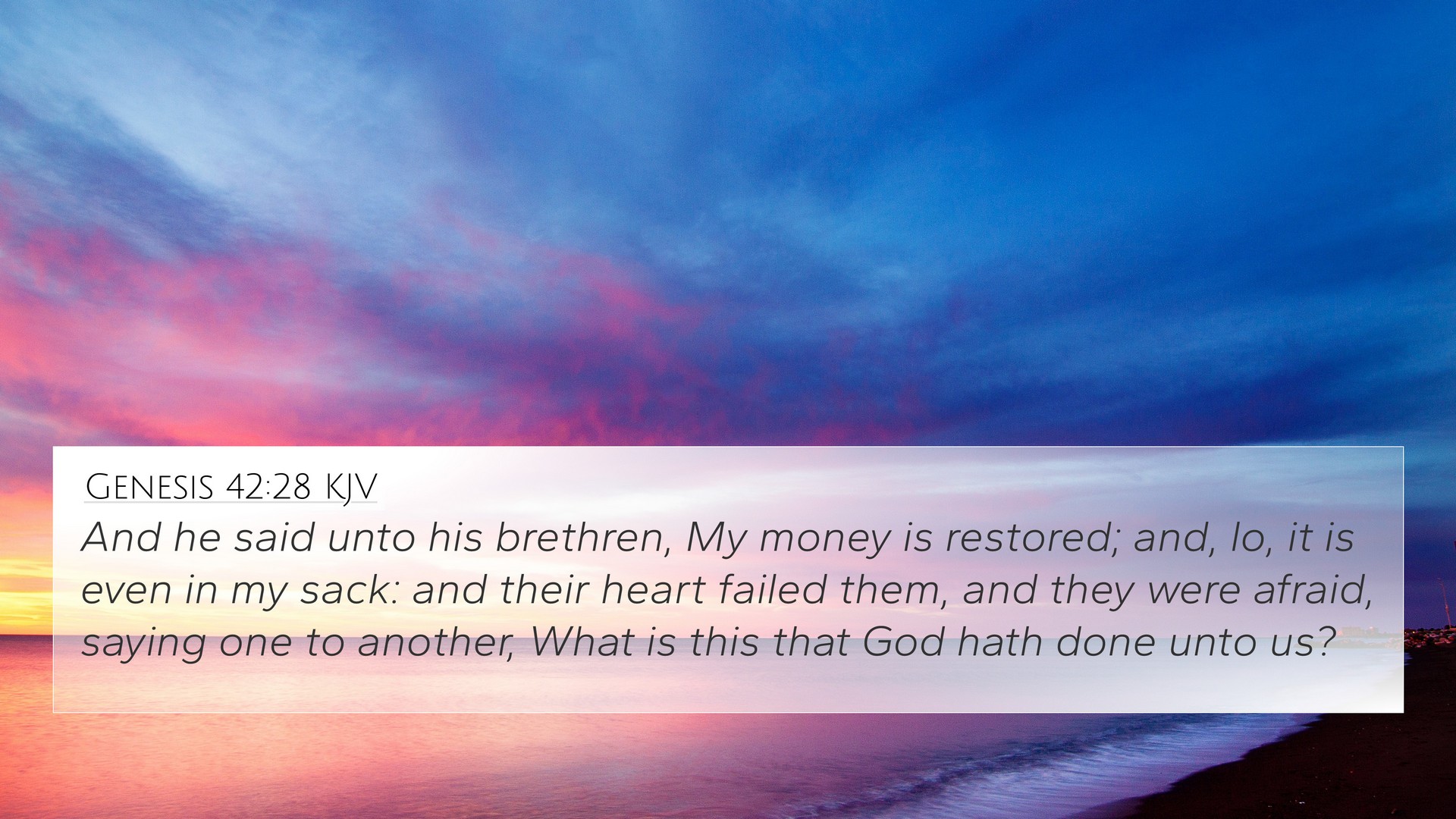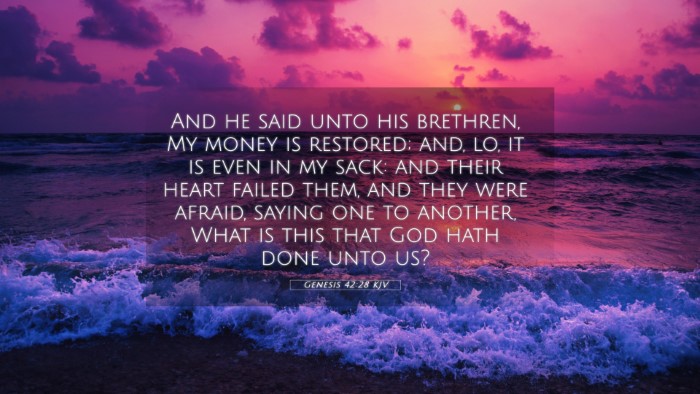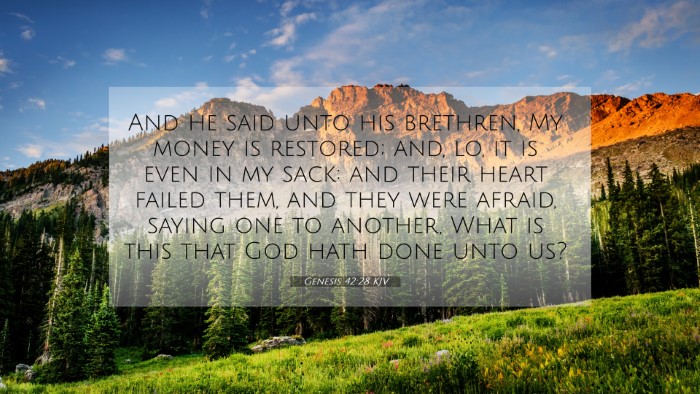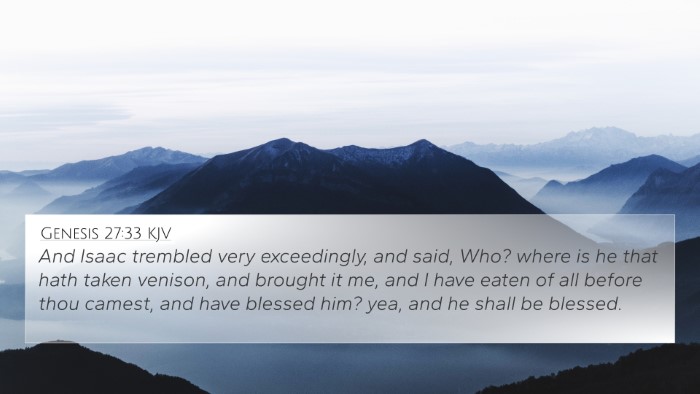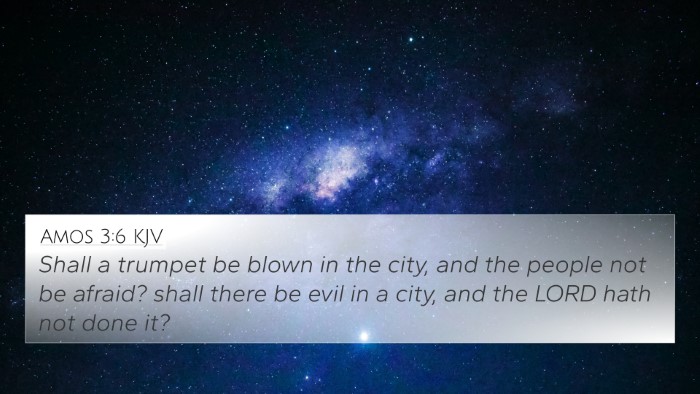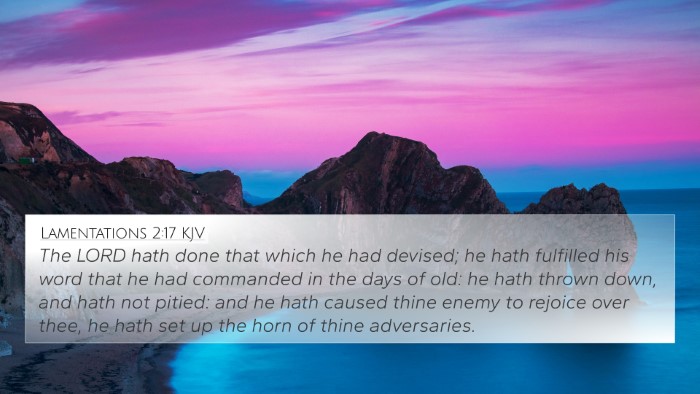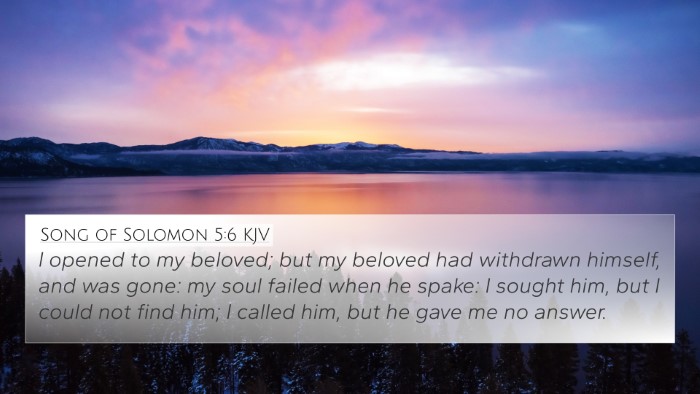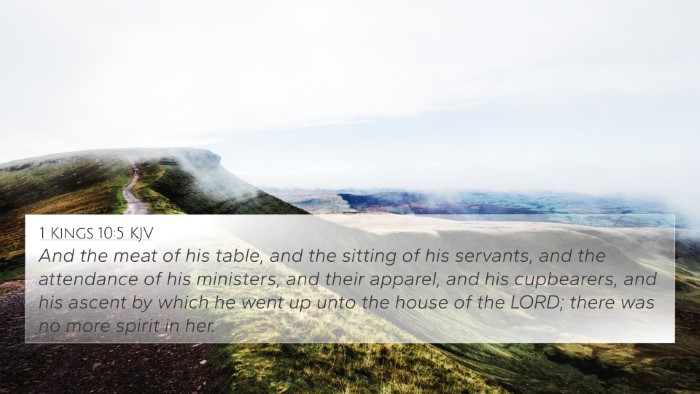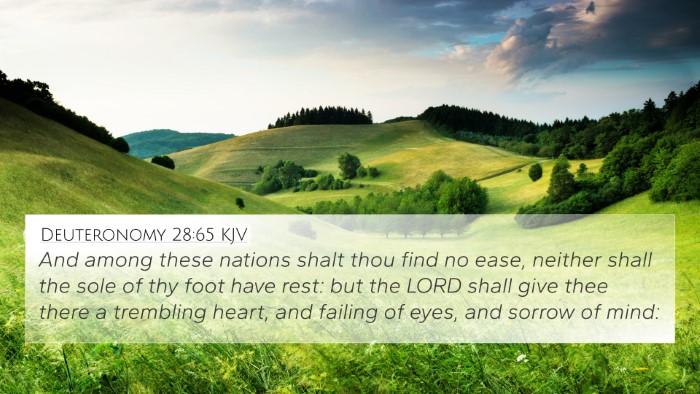Understanding Genesis 42:28
Genesis 42:28 reads, "And he said unto his brethren, My money is restored; and, lo, it is even in my sack: and their hearts failed them, and they were afraid, saying one to another, What is this that God hath done unto us?" This verse portrays a dramatic moment of discovery for the brothers of Joseph, reflecting their growing fear and realization of the consequences of their past actions.
Summary of Insights from Public Domain Commentaries
This verse is rich in meaning and significance when viewed through the lenses of various commentaries:
- Matthew Henry: He emphasizes the emotional turmoil of Joseph's brothers. Their discovery of the money in their sacks creates a sense of guilt and fear, highlighting their conscience at work. They begin to recognize their wrongdoings regarding Joseph and the divine providence at play, which leads to a deeper introspection of their actions.
- Albert Barnes: Barnes reflects on the idea that the brothers are here confronted with their past sins. The restoration of their money points towards a divine intervention that is meant to awaken their remorse and realization of God's hand in their lives. It hints at a redemptive path as they start to consider the ramifications of their betrayal of Joseph.
- Adam Clarke: Clarke notes the brothers' fear and confusion as an expression of their guilt. Their exclamation, "What is this that God hath done unto us?" suggests a dawning awareness that their current troubles may be a direct result of their earlier betrayal. Clarke's commentary links their fear to the broader theme of divine justice and moral accountability, urging believers to be aware of God's sovereignty in seemingly chaotic circumstances.
Biblical Cross-References
This verse contains connections to numerous other scriptures that deepen its understanding:
- Genesis 37:28: The brothers' initial betrayal of Joseph and their decision to sell him.
- Genesis 39:2: God's presence with Joseph, showcasing a theme of divine oversight.
- Psalms 37:23: The steps of a good man are ordered by the Lord, indicating God's control over our paths.
- Proverbs 28:13: Emphasizes the necessity of acknowledging one’s sins, aligning with the brothers’ fear.
- James 4:17: Addresses the burden of knowledge about right and wrong, resonating with the brothers' regret.
- Romans 2:6-8: Discusses God's judgment based on deeds, which frames the brothers' immediate crisis as a reckoning for their actions.
- Hebrews 4:13: "All things are naked and open unto the eyes of him with whom we have to do," reminds readers that God sees all, provoking their fear.
- 2 Corinthians 5:10: The idea of judgment before Christ connects with the brothers' realization of accountability.
- Galatians 6:7: This verse cautions against deceiving oneself, reiterating the theme of moral responsibility reflected in the brothers' situation.
- 1 John 1:9: Offering hope of forgiveness when confessing sins mirrors the brothers' potential for redemption.
Connections Between Bible Verses
Genesis 42:28 serves as a pivotal link in the narrative of Joseph and his brothers, revealing profound themes that resonate throughout the Scriptures. Through cross-referencing Biblical texts, one can see:
- How the fear of God's judgment in Genesis parallels the teachings of Christ regarding sin and repentance.
- Links to the theme of forgiveness and redemption, which is ultimately displayed in the resolution of Joseph's story in Genesis 50:20.
- The relationship between human actions and divine consequences as mirrored in many New Testament teachings.
Cross-Referencing Bible Study Methods
Utilizing tools for Bible cross-referencing can enhance understanding of Genesis 42:28:
- Employ a Bible concordance to identify keywords such as "fear," "money," and "God," connecting themes throughout scripture.
- Use comparative studies of Old Testament narratives with New Testament reflections to see thematic continuity.
- Engage in cross-reference Bible study by contrasting similar events in the Gospels, particularly regarding moral dilemmas and repentance.
Conclusion
Genesis 42:28 invites readers to reflect on their own moral responsibilities and the nature of divine justice. The brothers' fear becomes a rich ground for discovering how individual actions resonate through history and scripture. By engaging in modern tools for Bible cross-referencing, one can appreciate the intricate web of connections within the biblical text, ultimately leading to greater understanding and spiritual growth.
